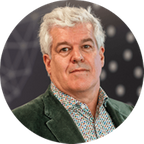This year, we explore the theme of "Delivery" - a concept that spans the full spectrum of neuroscience, from bench to bedside.
We’ll consider questions such as:
- How do we deliver treatments effectively and equitably?
- What does it mean to deliver meaningful outcomes for patients?
- How can we deliver real hope for those affected by neurological and psychiatric conditions?
This event fosters cross-sector connections and provides a platform for researchers at all career stages to explore new ideas, share insights, and build collaborations.
Each year, we select a theme that bridges preclinical and clinical neuroscience, creating a shared space for dialogue and discovery.
Ticket costs include lunch (which is vegetarian by default), plus tea, coffee, refreshments and a ticket to the evening Drinks Reception, which is supported by Canary Wharf Life Sciences Group and Kadans Science Partner
Featuring:












